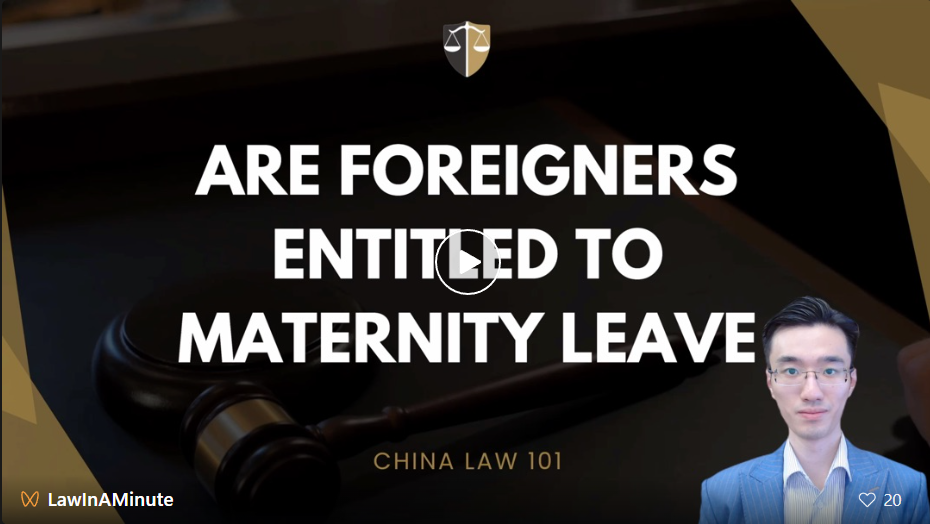·About The Author·

- Author of Chinese Law Books: Intellectual Property, Commercial, Company and Economic Law In A Minute
- Author of English Law Book Business Law In A Minute
- Co-Author of Peking University Textbook: Business Ethics
- Graduated from Fudan University Law School
- Interviewed by Bloomberg and Timeout
- Mentor at Bloom Education (Charity)
Wechat: lawinamin
Email:[email protected]
Maternity leave is a crucial right that ensures the well-being of expectant mothers and provides them with the necessary time to recover and bond with their newborns. China, as a country, recognizes the importance of maternity leave and has implemented robust regulations to protect the rights of its citizens.
In China, maternity leave is governed by the Law on Population and Family Planning, the Labor Law, Special Rules on the Labor Protection of Female Employees and other provincial laws. These laws apply to all female employees, including foreign nationals, who work in China under legal employment arrangements. This means that foreigners, like their Chinese counterparts, are entitled to maternity leave in accordance with the prevailing regulations.

The duration of maternity leave in China varies based on specific circumstances. According to current regulations, female employees are generally entitled to a minimum of 98 days of maternity leave. However, the situation becomes more complex when we consider local laws and regulations. Different provinces offer additional maternity leave days, with Shanghai providing a total of 128 days, Sichuan offering 158 days, and Hainan granting 188 days. It's important to note that these additional days are subject to local family planning regulations. To determine your eligibility under local laws, I recommend contacting your local human resources and social security bureau.
In summary, you are entitled at least 98 days of fully paid leave at your current salary. Some employers may wrongly inform you that you will receive only 30 days of fully paid leave, 98 days at the minimum salary, or no salary at all. All of these practices are illegal. It is crucial not to accept anything less than 98 days of fully paid salary. Maternity leave wages are meant to be covered by social insurance, but many employers fail to contribute to it, which is illegal. Consequently, they are reluctant to pay out of their own pocket. However, the law stipulates that if your employer does not pay for social insurance, they are still obligated to provide you with your fully paid maternity leave.

You can begin your maternity leave 15 days prior to childbirth. To do so, simply send a notice to your employer, accompanied by relevant evidence of your expected date of childbirth, such as medical records and hospital certificates. It's important to note that you do not require approval, as this is your statutory right. You only need to inform your employer in writing that you will be taking your 98, 128, 158, or 188 day leave.
If your employer refuses to grant you maternity leave or pay your maternity wages, my advice is to take your leave first and then pursue legal action for the unpaid wages. You have the right to terminate the contract immediately based on salaries not paid in full and can also seek severance pay through legal means. Additionally, if your employer does not contribute to social insurance, you can fight for coverage of your hospital bills, as they are intended to be partially covered by social insurance.


